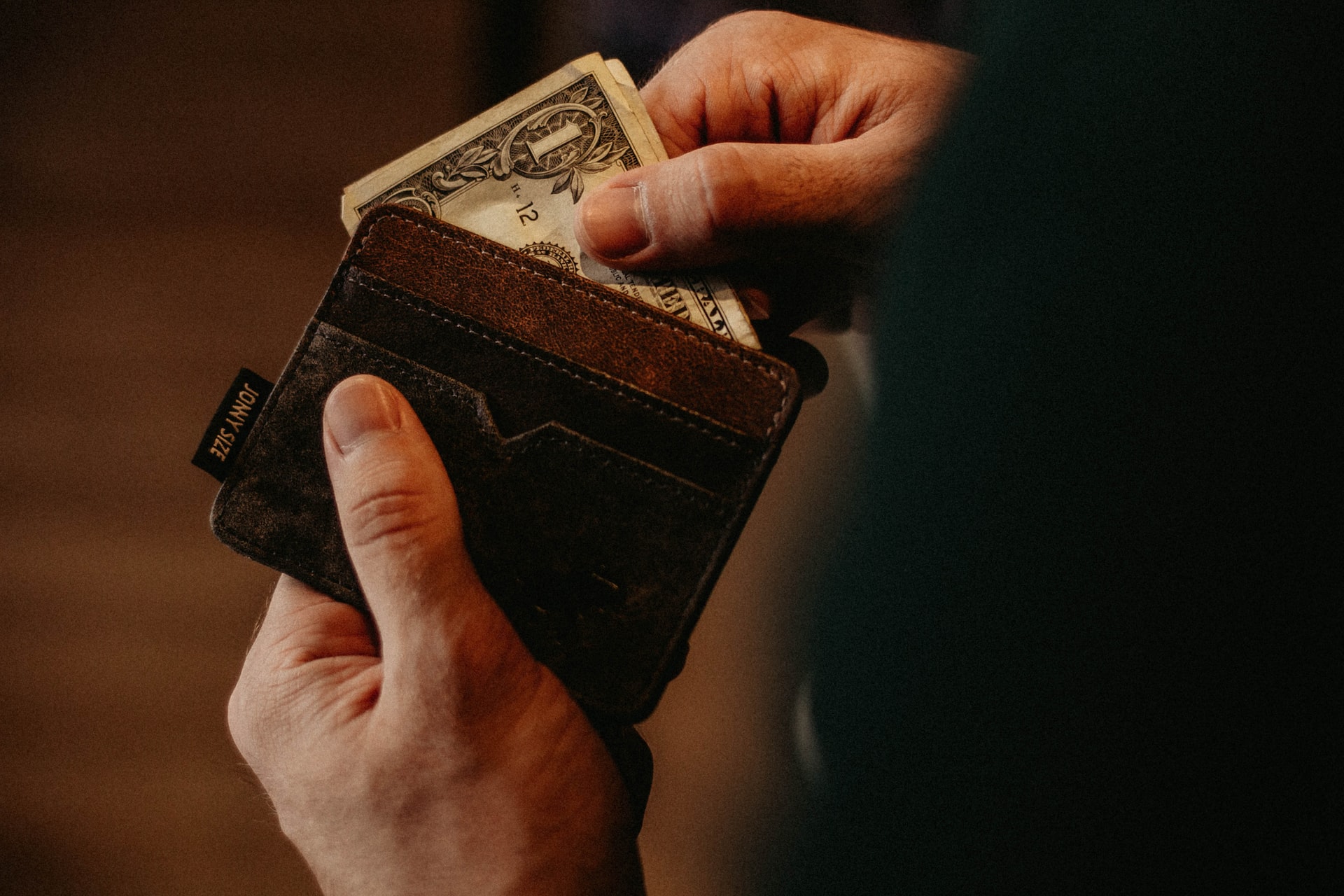Direct deposits have made banking less complicated and let you receive your funds faster. These deposits rely on new technology that automates money transfers to your bank account. While the technology speeds up transfers, it’s natural to wonder when the funds will arrive in your account. In addition, other people may have safety concerns, given the technology’s role in facilitating these transfers. We will discuss everything you need to know about direct deposits and how to receive your paycheck earlier.
What are Direct Deposits and How Do They Work?
The process of realizing your paycheck is more complicated without the direct deposit system. You have to receive your pay from your employer and drive to the bank. Some workers pencil this detour into their commute on paydays, while others go home with the paycheck and deposit it another day. If you do not deposit the check right away, it can get lost, stolen, or damaged. You would then have to approach the employer and request a replacement check, which can be uncomfortable.
The direct deposit system eliminates these inconveniences. The payment arrives electronically in your bank account. You do not have to get your check on payday and drive it to the bank. Avoiding a visit to the bank can save you 15 minutes or more, depending on the line, and you can also save on gas. Direct deposits save time and money while avoiding loss or theft. Employers also save money by avoiding postage, envelopes, manual labor involved with check signing, and other costs.
The direct deposit payment system also helps employers. Some workers will not deposit a physical check for several days. Your company’s bank account will change during this timeframe, and some employers have narrow margins. If an employee deposits a check when the employer has insufficient funds in their account, the check will bounce, resulting in a fee. Employers can also pay everyone on time, an initiative that would make employees feel more confident on the job.
Are Direct Deposits Safe?
Some consumers are worried about the safety of direct deposits. They hear about large-scale cyberattacks on major corporations. These attacks can cost corporations millions of dollars and reveal sensitive information. With cyberattacks on the rise, some wonder if a hacker can intercept direct deposit payments.
Luckily, direct deposits give consumers a safer way to receive their money. The U.S. government uses direct deposits to pay their workers, a testament to this method’s safety. The electronic version is the safer way to receive payments. The physical check can get lost or stolen, and an employer may make a mistake when writing your check. Even if you get a new check after losing your other one, a thief can use the floating check for identity theft.
How to Set Up a Direct Deposit
If you want to set up a direct deposit, you have to talk with your employer. Employers who offer direct deposit will inform you about how the process works and the steps to enroll in the direct deposit system. You will need to open a bank account if you do not have one already. Your employer will need your bank account number and routing number to send direct deposits. You can check with your bank for those numbers or browse your online dashboard to find those numbers. Upon completion, future payments will automatically go to your bank account.
Some employees do not believe receiving their money 1-2 days early will make much of a difference. These people may have no issues covering living expenses and other costs. These people may have no issues covering living expenses and other costs. However, early deposits still have benefits. You can invest your money sooner or collect interest from your savings accounts.
How Long Do Direct Deposits Usually Take?
Some employees need quick access to their paychecks. Monitoring spending habits can reveal opportunities to reduce costs and build up an emergency fund. This strategy can strengthen your long-term financial health, but some workers need immediate funds to cover emergency expenses at the moment. Waiting a few extra days for payment can force low-credit workers to rely on payday loans and other dangerous loans. These loans can ruin a borrower’s financial outlook and increase stress in the workplace. Personal loans and lines of credit are more manageable for these expenses, but why have employees go through this stress when it’s unavoidable?
Many banks show direct deposits in your bank account at midnight. You will also have to see which payroll software your employer uses since it can affect delivery time. Most payroll software lets you receive payments within two days, while others may require up to four days. The ACH requires direct deposits to land in someone’s bank account within two days.
Factors Influencing the Time of Direct Deposit
The time it takes for direct deposit funds to land in your bank account depends on the context. These factors play a role regardless of whether you do your banking with a financial institution, credit union, or online bank.
Bank’s Direct Deposit Processing Times
The Automated Clearing House (ACH) processes most deposits within 1-3 business days. Banks can take additional time to verify transfers and make the funds available to you as soon as the next business day.
Employer’s Payroll Submission Time
If you receive a direct deposit from an employer, it can take 1-3 business days to arrive in your bank account. Early access is more convenient than a paper check, and submitting a direct deposit form has become more common for businesses. Employees also have to consider how long it normally takes for the employer to submit payroll.
Holidays and Weekends Effect on Direct Deposit
Direct deposits are only processed on business days. If a direct deposit is initiated right before a holiday or a weekend, it will take longer to receive your payment.
What Time Do Direct Deposits Hit Your Bank Account?
Each bank has different rules, but you can expect most direct deposits to hit your bank account at midnight. This is because some financial institutions update their accounts a few hours after midnight. However, most banks complete the direct deposit before 6 a.m., allowing many consumers to wake up the next day with the funds sitting in their accounts.
Can Direct Deposits Hit Your Account on Sundays or Federal Holidays?
Direct deposits can only be transferred to your account during business days. Therefore, holidays and Sundays are not viable days for direct deposits to take place. Some employers work around this, but you can save extra funds for the 1-day delay or use an app for early paydays.
How to Check If a Direct Deposit Has Gone Through
If you are waiting for a tax refund, government benefits, Social Security benefits, or any other type of payment, it’s a good idea to check if the direct deposit has gone through. You can log into your bank account and view the transactions within your checking or savings account. You can then see if the transaction is pending or has been successfully processed. Accountholders can also use this process to view bank account information when cashing checks. This verification method isn’t only for direct deposits.
Other Common Issues with Direct Deposits
Direct deposits normally arrive on time, and the benefits outweigh the drawbacks. However, some issues can prolong your access to cash during pay cycles.
Delay in Direct Deposit
Weekends and federal holidays can delay the electronic payment that should arrive in your account. Most delays are only 1-2 business days. The delay partially depends on the time of day that the direct deposit is initiated.
Direct Deposit Not Received
Some people do not receive direct deposits because they have submitted the wrong bank account information. You should verify with the sender that they have the correct information on file. Many businesses let you check your payment details, such as your checking account number and routing number.
Even if you remember submitting the correct information, it’s still worth verifying. It’s possible for a hacker to put their bank account details instead of yours to collect your payments.
Get Your Direct Deposits in Your Account Faster
Direct deposits help workers receive their paychecks sooner. This express delivery makes it easier to cover urgent expenses without taking out loans or leaning on credit card debt. However, some direct deposits still do not make it to your account on time. Not everyone can wait 1-2 days for their paycheck to hit their bank account.
Conclusion: Maximizing Direct Deposit Benefits
Direct deposits give you easier access to cash and allow you to make automatic transfers. Some people make automatic transfers to their brokerage accounts and build their wealth with index funds.
This feature gives customers more flexibility and a greater availability of funds. Most direct deposits arrive within 1-3 business days, and some banks have built-in features that let you access every paycheck sooner. The banking industry will continue to be involved, but direct deposits are one of the best features in the sector.
FAQs About Direct Deposit
It can sometimes take 1-3 business days to receive a direct deposit. If you did not receive the funds today, your cash may arrive tomorrow.
Direct deposits usually arrive in your bank account between midnight and 6 a.m. on payday.







